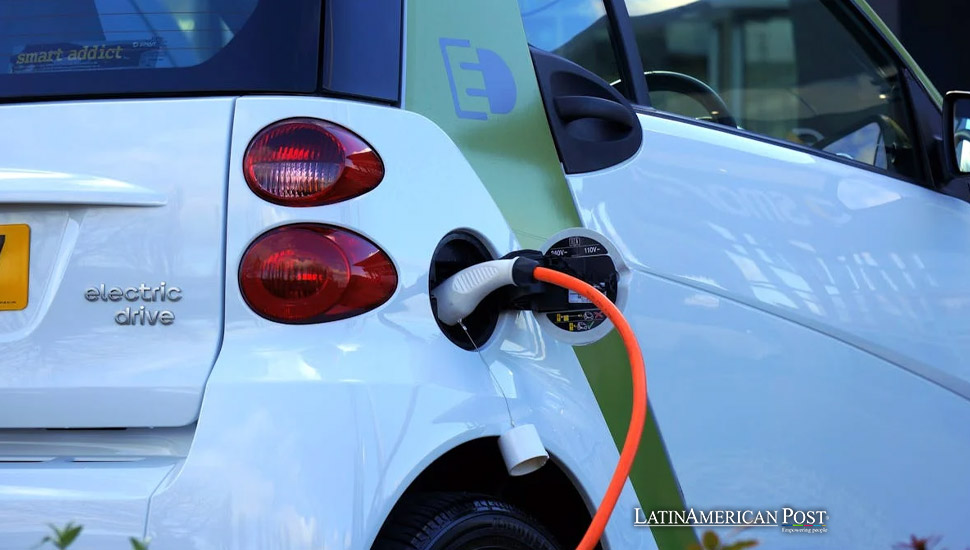Mexico’s Bold Electric Car Vision Could Drive Sustainable Economic Growth

Mexico’s new president, Claudia Sheinbaum, recently announced an ambitious plan to develop a small, affordable electric car made in Mexico. This initiative promises to revolutionize the country’s economy and promote sustainability while harnessing local ingenuity and resources by reducing dependency on foreign automakers.
A Homegrown Solution to Mexico’s Electric Vehicle Needs
In a significant move, Mexican President Claudia Sheinbaum unveiled her government’s plans to create a locally produced, affordable electric car designed specifically for the Mexican market. The idea is bold but necessary, as electric vehicles (EVs) from companies like Tesla are relatively inexpensive for most Mexicans. Tesla’s cheapest model, the Model 3, costs around $30,000, which puts it out of reach for the average Mexican household. Sheinbaum’s vision for a “compact, cheap electric car” aims to fill this market gap, offering an affordable and practical alternative.
The president’s plan centers on utilizing Mexican companies and researchers to develop the EV. “The idea is to use Mexican companies and Mexican researchers’ ingenuity to bring them together to assemble this electric car,” Sheinbaum said. This approach is a win-win for Mexico’s economy, as it would foster domestic innovation, create jobs, and reduce the country’s reliance on imported vehicles from China and other countries.
Sheinbaum hopes to stimulate local industries by creating production chains within Mexico while addressing a growing need for sustainable transportation. Electric vehicles have become a key solution as more cities worldwide adopt environmental policies to reduce carbon emissions. If Mexico can produce its EVs, it will meet domestic demand and position itself as a player in the global EV market. This could lead to new opportunities for export, strengthening Mexico’s economy in the long term.
Challenges and Opportunities in Electric Car Production
While the idea of producing a Mexican-made electric car is promising, it has. One of the biggest obstacles Mexico faces is its need for lithium production. Lithium is a critical component in the batteries that power electric vehicles. Mexico needs the infrastructure to produce it at the scale required for mass production of EVs. Although there are clay-encased lithium deposits in northern Mexico, these have yet to be tapped due to the absence of commercially viable mining techniques.
However, Sheinbaum’s government is aware of this limitation and is working on long-term solutions. She acknowledged that lithium extraction may take time but stressed that the initiative to develop the electric car must proceed. By investing in research and development, Mexico could eventually expand the technology to harness its lithium reserves, ensuring a sustainable supply of this critical resource.
Another potential obstacle is Mexico’s aging power grid, which needs help to meet current electricity demands. If electric vehicles become widespread, this could put even more strain on the system, particularly for households that wish to charge their cars at home. Mexico’s electricity pricing structure also presents a challenge. While the country subsidizes low-level domestic consumption, higher rates kick in for any usage beyond basic household needs. This could result in prohibitively expensive electricity bills for those charging electric cars at home.
Nevertheless, these challenges are manageable. With suitable infrastructure investments, Mexico could modernize its power grid and create a more favorable environment for electric vehicles. Addressing these issues could lead to further economic growth, as investments in the energy sector would create jobs and stimulate innovation in renewable energy technologies.
A Boost for Local Industries and Researchers
One of the most exciting aspects of Sheinbaum’s plan is its potential to revitalize Mexico’s manufacturing and research sectors. By focusing on local talent and companies, the initiative could create a new wave of innovation and entrepreneurship. This would benefit the auto industry and have ripple effects across other sectors of the economy.
Mexico has a well-established manufacturing base, particularly in the automotive industry, where it has long been a hub for producing cars for global automakers. By shifting some of this capacity toward the production of electric vehicles, Mexico could leverage its existing expertise while developing new skills and technologies. This would help the country transition toward a more sustainable economy, reducing its reliance on fossil fuels and positioning it as a leader in clean technology.
Collaboration between Mexican companies, universities, and researchers would also be critical drivers of success. By pooling knowledge and resources, Mexico could develop innovative solutions to the challenges of electric vehicle production, such as battery technology and vehicle efficiency. This focus on domestic research would help create high-skilled jobs, keep talent within the country, and reduce brain drain.
Moreover, by producing affordable electric cars, Mexico would democratize access to clean transportation. The current market for electric vehicles is dominated by high-end models that are out of reach for many consumers. If Mexico can produce a compact, low-cost EV, it could tap into a vast segment of the population eager for an affordable, sustainable alternative to traditional gas-powered cars. This would benefit Mexican consumers and create a new export market, particularly in other Latin American countries where affordability is crucial.
Overcoming Competition from China and India
One of the driving forces behind Sheinbaum’s initiative is the growing presence of Chinese and Indian electric vehicles in Mexico. Low-cost electric motorbikes and small cars from these countries have flooded the market, offering an affordable but often unsafe alternative to more established brands. While these vehicles fill a niche, they come with significant safety risks. In Mexico, it’s common to see families of three riding motorbikes, which raises concerns about road safety.
By developing a Mexican-made electric car, Sheinbaum aims to provide a safer and more reliable alternative to these imports. Mexico’s focus on quality and safety would set its vehicles apart from the cheaper, and sometimes inferior, options flooding in from China and India. Additionally, producing cars domestically would help Mexico avoid the pitfalls of relying too heavily on imports, which can lead to trade imbalances and job losses in the local economy.
While some Chinese-made electric cars are available for as little as $1,000, it would be difficult for Mexican manufacturers to compete with that price point. However, by focusing on quality, safety, and local production, Mexico can carve out a niche in the EV market. The government should focus on producing a reliable, affordable, and safe electric car that meets the needs of Mexican consumers while supporting domestic industries.
Moreover, Tesla’s recent decision to pause its plans for a Gigafactory in Mexico has created a gap that Sheinbaum’s initiative could fill. Tesla’s hesitation, driven by concerns over potential tariffs under a Trump presidency, presents an opportunity for Mexico to assert its independence and build its own EV industry. Mexico can reduce its dependence on foreign automakers and create a more resilient economy by developing its own electric cars.
A Bright Future for Mexico’s Electric Vehicle Industry
President Claudia Sheinbaum’s bold vision for a Mexican-made electric car represents a significant step forward for the country’s economic and environmental future. By harnessing local talent, fostering innovation, and focusing on sustainable development, this initiative has the potential to transform Mexico’s economy while reducing its carbon footprint.
Though challenges remain—such as the need for lithium production and an improved power grid—the benefits of developing a homegrown electric vehicle industry far outweigh the hurdles. With suitable investments and a commitment to sustainability, Mexico can position itself as a global leader in the electric vehicle market.
Also read: Starlink’s Expansion in Mexico: A Booming Market with Challenges Ahead
In doing so, the country would create jobs, stimulate innovation, and provide affordable, eco-friendly transportation to millions of Mexicans. This initiative is not just a great idea for economic development—it is a necessary step toward building a sustainable future for Mexico and the world.





